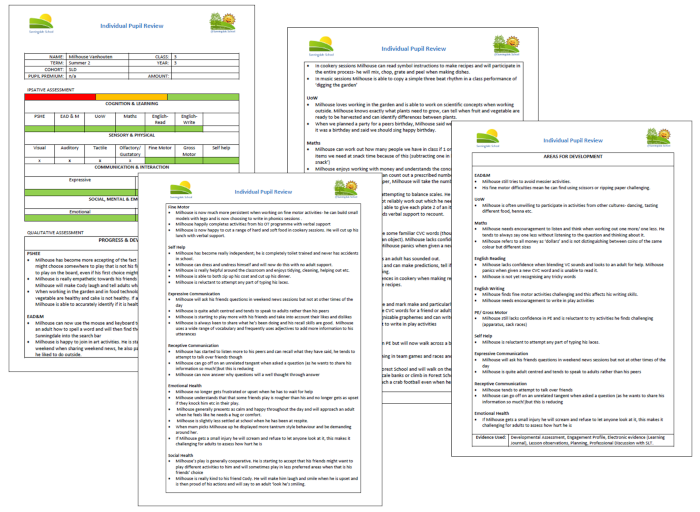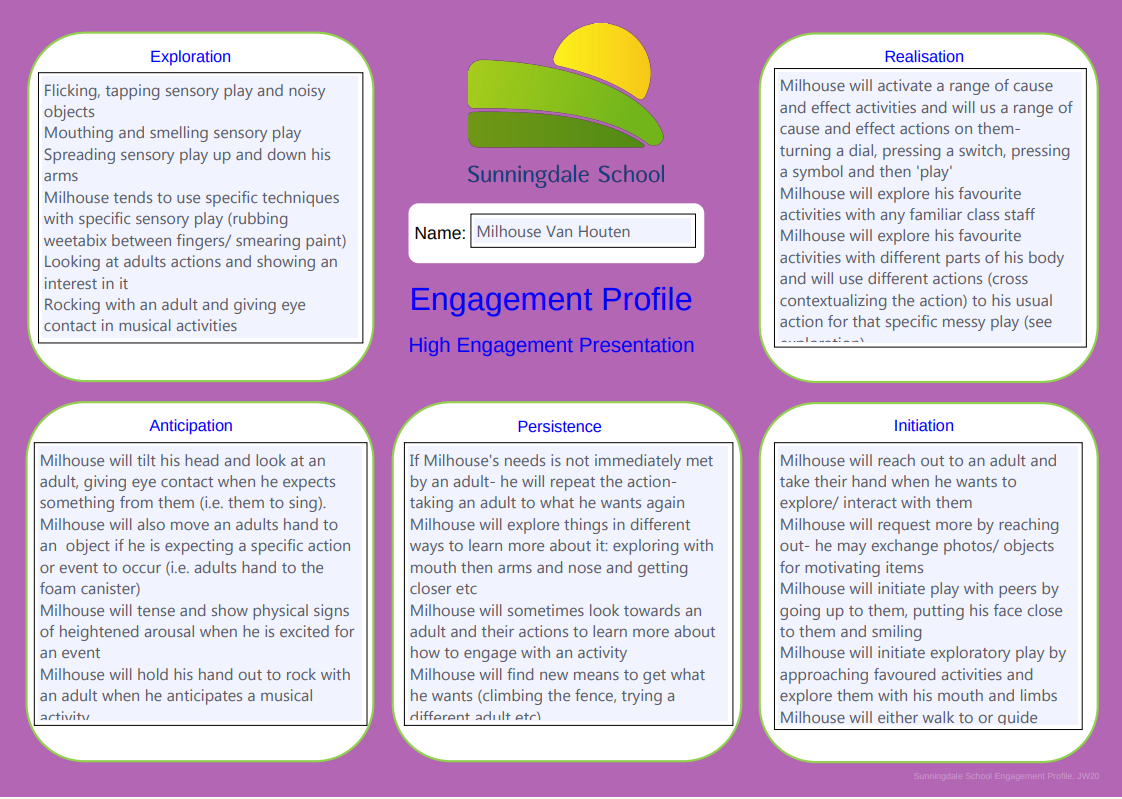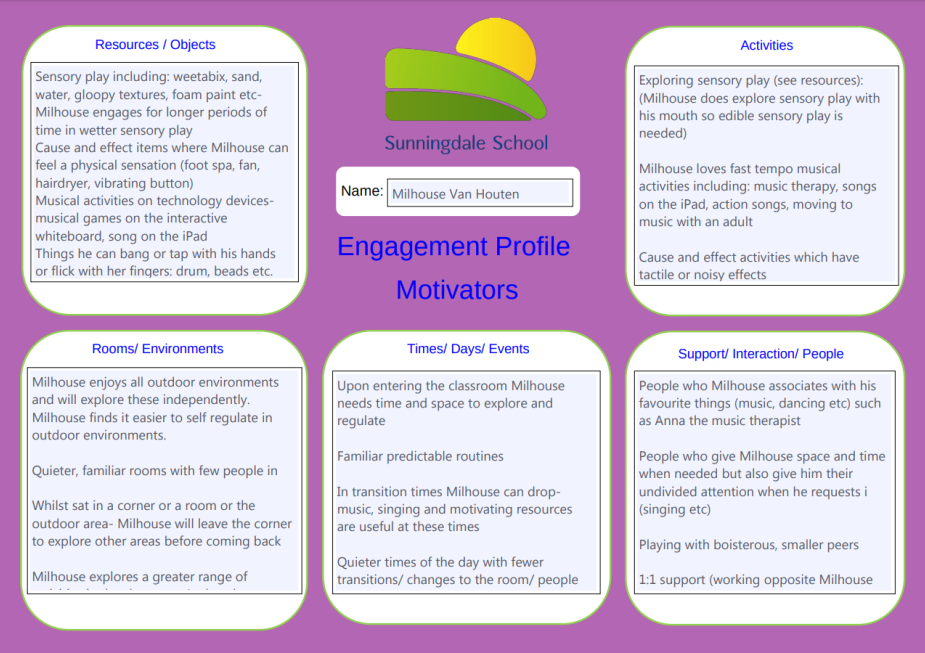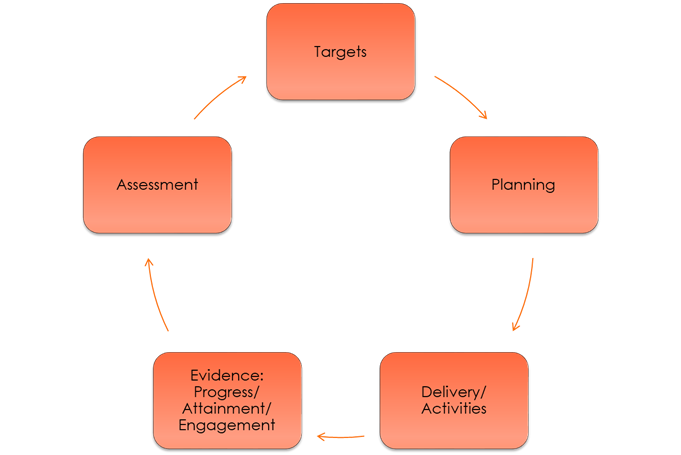Ipsative Assessment
Pupils at Sunningdale School are ipsatively assessed termly based on a range of factors unique to them. Evidence for this assessment is varied and heavily moderated.
Sources include developmental assessment frameworks, engagement profiles, understanding of engagement motivators, recorded observations (video, photographs, written), deep dive pupil progress meetings and professional opinion. The developmental assessments that form part of this process are also matched to the needs of the individual pupil and the overarching aims of the curriculum pathway that they are currently accessing.
Progress and attainment is judged to be making
• Little Progress: requiring Case Study & Intervention;
• Good Progress and/ or
• Excellent Progress.
These are recorded as Red, Amber and Green respectively for each area of development on each pupil’s Individual pupil review. Individual pupil reviews are undertaken termly in October, February and May and are led by the Headteacher or Deputy Headteacher.
In order for progress with a specific outcome or area to be defined as ‘Excellent Progress’ the pupil’s engagement motivators must be well understood and defined. It must be evident that these have been utilised in the classroom environment to secure intrinsic engagement with learning: there must be evidence that the pupil is engaged in meaningful learning. The outcome(s) being judged must be relevant to the pupil’s longer term aspirations and/or development. There is an expectation that the pupil will have made developmental progress, even if that is laterally via increased maintenance, fluency, independence or generalisation (as defined in Mapping and Assessing Personal Progress, Sissons, 2018). Quantitative progress against outcomes or identified assessment frameworks is considered in making the judgement for the individual pupil but its influence on the judgement is subjective based on the individual circumstances, disability and the general learning characteristics of the individual.
For a pupil to be considered to be making ‘Good Progress’ they will usually be making developmental progress, at least laterally, but the other cross-referenced and heavily moderated sources of evidence may suggest that this could be better. Usually this will occur where a child’s engagement motivators are not well understood or classroom staff feel that they do not fully understand an aspect of the child's development such as their expressive communication or self-regulation.
Where a child is making no demonstrable progress or their presentation of engagement and engagement motivators are not well understood they would be considered to be making ‘Little Progress’. In these cases, prolonged discussion and observation of the pupil will take place in the identified area(s) of development and classroom staff will be supported by middle and senior leaders (as well as identified multi-professionals) to better understand how to engage the pupil in learning and support their progress.


Pathway Specific Assessment Overview

“Without engagement, there is no deep learning, effective teaching, meaningful outcome, real attainment or quality progress” (Hargreaves, 2006, Carpenter, 2010).
If you do not understand a pupil’s motivators and how they engage across a range of facets how can you claim they are making their optimum levels of individualised progress? We don’t believe you can! Where a pupil’s motivators are not understood at a schematic level we will not judge them to be making Excellent Progress in one or more relevant areas of their development.


Mapping and Assessing Personal Progress (MAPP) is used via Evidence For Learning to collect evidence and indicate next steps for learning. This supports an assessment for learning cycle to ensure personalisation of planning and delivery of activities.

Evidence For Learning
Evidence for learning is used for evidencing and tracking progress against individual Personalised Learning Plan (PLP) targets related to Cognition and Learning, Communication and Interaction, Personal, Social, Emotional and Mental Health and Physical and Sensory Development. These are linked to pupil’s aspirations as set out in their Education Health & Care (EHC) Plans. Links are made to Preparation for Adulthood and developmental plans provided by Health professionals such as Speech and Language Therapists, Physiotherapy, Occupational Therapists and Mental Health professionals. EFL provides a platform that allows clear and precise overviews of pupil progress towards their aspirational outcomes and ambitions.
As Evidence for Learning supports any assessment framework and any assessment model we use it across ALL pathways with ALL pupils.
References:
Hargreaves (2006) in Carpenter, B., Egerton, J., Cockbill, B., Bloom, T., Fotheringham, J and Rawson, H. (2015) Engaging Learners with Complex Learning Difficulties and Disabilities. Abingdon: Routledge.
Carpenter, B., Egerton, J., Brooks, T., Cockbill, B., Fotheringham, J. and Rawson, H. (2011) ‘The complex learning difficulties and disabilities research project: developing meaningful pathways to personalised learning’ (project report). London: Specialist Schools and Academies Trust